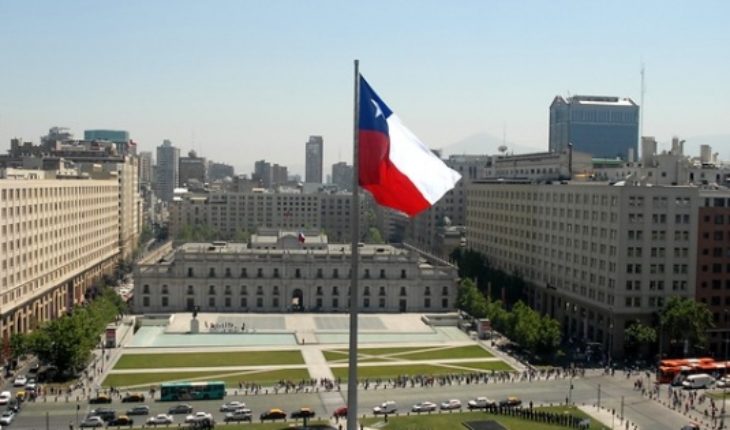The priestly statements of Eugenio Tironi in the last days cannot go unnoticed. On the one hand, and given the traumatic core of his sayings, he speaks to us as a “renegade son” of a left he does not want – or cannot – to carry with his Fathers. Tironi, the parricide, is not interested in preserving the immaculate smile of his dealists, and prefers to donate all the exequis to the “winners”. But there is also a liturgical act in his “gesture” when he sentences – avoiding the majader of saying it once again – the twilight of a “testimonial left,” overcame in his own “humanitarian narrative.” On the other, he is a predatory Father willing to abandon his “stepsons” by saving himself any rebellious interrogations over some political horizon. Thus, and although predictable, a shadowed decision is soured before the times: “from the vanquished to the victors”. Well, let us look at the root of our political decadentism, to try to decipher the new state of capitulations.
The Chilean transition to democracy was an “intensely recasting” cycle that appealed to the ideological ravings of the concert-a-cons enterationist universe to build a “millennial present”. Gradually walking, our “naughty progressivism” used a “routine of agreements” that sought to overshadow the emergence of “vitriolic discourses” (read sulphuric subject), whose effects could destabilize the institutional mace and generate a devastating setback that would take us to the cliff. Despite the current state of diatribes, in recent months there has been a fervent epochal nostalgia for resuming a transitional climate, focused on national agreements and governance pacts, restoring a political time that has not always been recognized as a vigorous experience within the social democratic pendulum.
As we well know in the 1990s, a hegemonic sector of the rainbow coalition, took on an institutional prominence – without discounting Marcelo Shilling’s unfailing office – to accelerate a set of drastic reforms typical of “neoliberal recasting” (big bang¡) that was consummated in the midst of semi-representative democracy and which bears no precedent for cumulation (techno-financial) with respect to institutional transformations implemented in the late 1970s. While the conditions for the possibility of such changes are in the “anti-fiscal schok”, there is no strict continuity between the de-regulation of the production apparatus, the factual outsourcing of the economy in times of authoritarianism and the processes of “rupture re-structuring” inaugurated under the first decade of the Concertación. Today the thesis of continuism or the administration of a model is insufficient to analyze an “explosive dynamic” that must be interrogated in all its multi-causal definitions. This is not a problem of magnitudes, which only exhausts the problem in the expansive privatization, but an unsuspected social, cultural, semiotic and cognitive re-articulation (where all molecular displacements were “overdetermined” as one would say old Althusseriaan).
Under the fear-consensus binomial the concerting world was organized under a game of concavities, inflections and deputies exacerbating a “prudential principle”. In good accounts, it was a good resource to use a sociability focused on governance, more so when it came to tempering rebellions and narrowing down the “litigating subjects” stubborn by new spaces of democratization than the rainbow coalition had originally compromised – the abandoned program. However, in a fleeting span, the incidental actors of progressiveism interpreted the “trends of change” and opened themselves to the vertigo of “liberalization”, intensifying by omission or admission, the break between politics and daily life, consolidating a ” epic of realism”, an indispensable issue to sustain a barrage of foundational edges. From there derives a common place where it is often stated euphemistically, and with complete lightness, that the Concertación only passively or actively administered – but simply inherited – the economic-social model bequeathed by the reforms implemented by the “Chicagos boys”. At this point the use of the term “administration” is idle, vulgar and conceptually hollow to understand the process of “big ban” that the elitarian agents of the Concertación implemented leading to a “neo-liberalism” of unsuspected scopes.
Against all description, the Rainbow Coalition made “liberalization” a “political rationality” when it set out to push for a “recast movement” to establish – which more, which less – the axioms of Hayekian pragmatism. Such a process is more like a true phase of “recastal fracture” (which empirically ranges from Salmoneras, to mining to the privatization of traditional universities, from Laureate to the field of real estate, road and all chain of services). Such a succession of swarms is far from the parish thesis concerning the administration of an “inherited model”, a correlational hypothesis that still circulates profusely through our audiences. And to show a discreet synopsis. On the occasion of the energy crisis, Eduardo Frei privatized Colbún, Edelnor, Edelaysen, which together accounted for about 40% of the country’s electricity generation to date and was still in the hands of the state. For its part, the Sanitary Works Company (EMOS) was a state industry that covered the area of the capital and surrounding areas. However, EMOS was privatized in an action that started Frei and culminated Ricardo Lagos. And to show a button: the company ESSAL that has led to a painful supply problem these days in the city of Osorno, a privatization process that began in 1999 when it was absorbed by Iberdrola. In sum, a true “privatization methodology” was deployed at the end of the Frei Ruiz-Tagle government and, such a company, was sanctioned under the management of Lagos Escobar which for Creole purposes operated as the “Chilean Menem” offering institutional management, the political practices, jurisprudence and the cultural imaginary such symbiosis required. There is no doubt that under both governments the new neoliberal estate was built. In a certain analysis Ricardo French-Davis (2002) has argued that “During the 90’s the governments of the Concertación pushed reform reforms, with the aim of introducing pragmatism”.
Indeed, our “advanced neoliberalism” – of unprecedented regional reaches – was made possible not only by masons or foremen seduced by the metaphor of entrepreneurship, but on behalf of an elitarian cast that rationally assumed the impossibility of to the market through public-state hedges, embracing an ethos that boosted the expansive force of markets.
In the case of neoliberal progressism, and given its turkey slavery, only one encyclical remains: “SPE SALVI facti sumus, in hope we were saved, St. Paul says to the Romans and also to us.”
The content poured into this opinion column is the sole responsibility of its author, and does not necessarily reflect the editorial line or position of El Mostrador.





